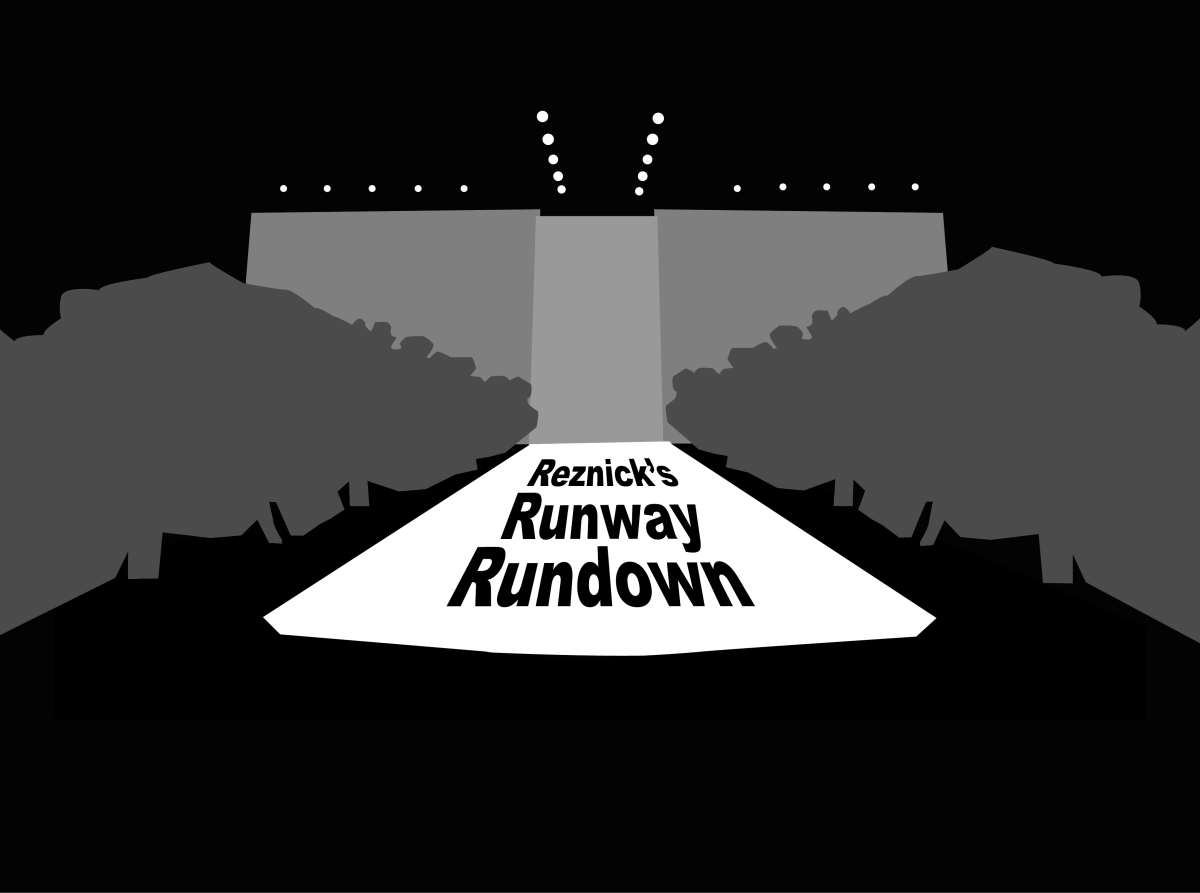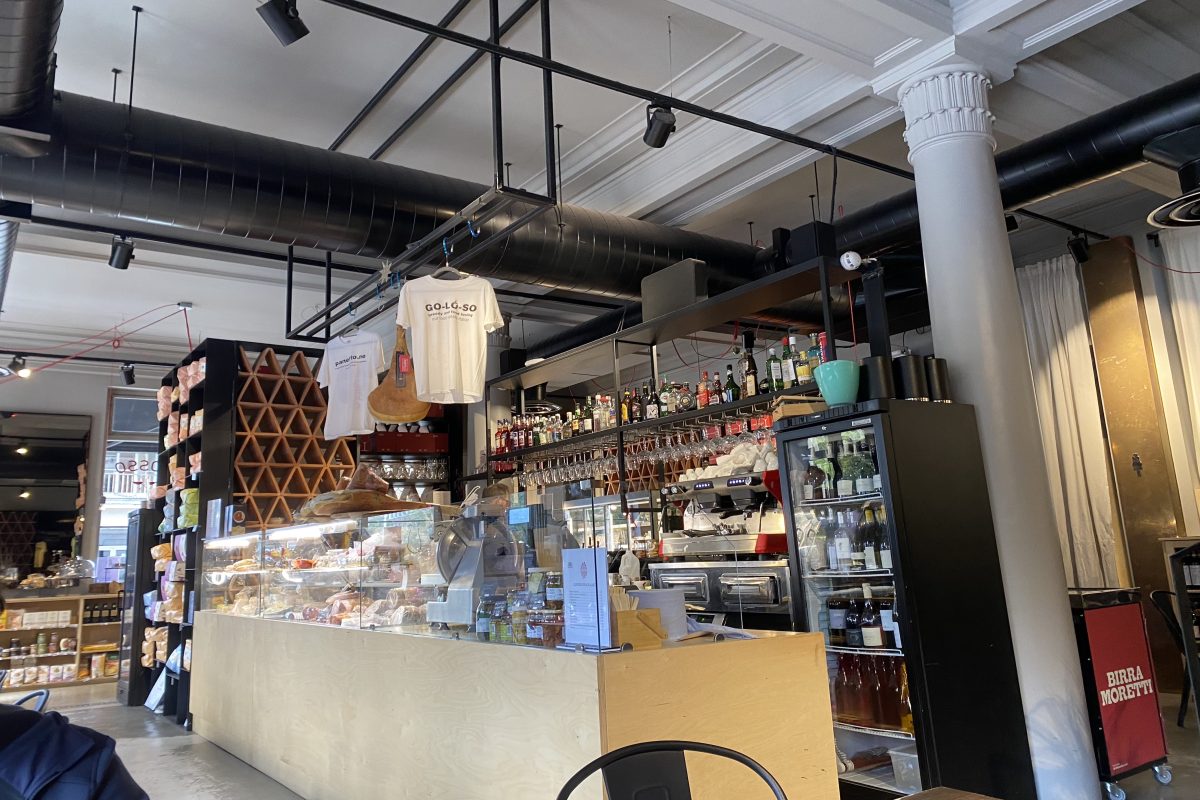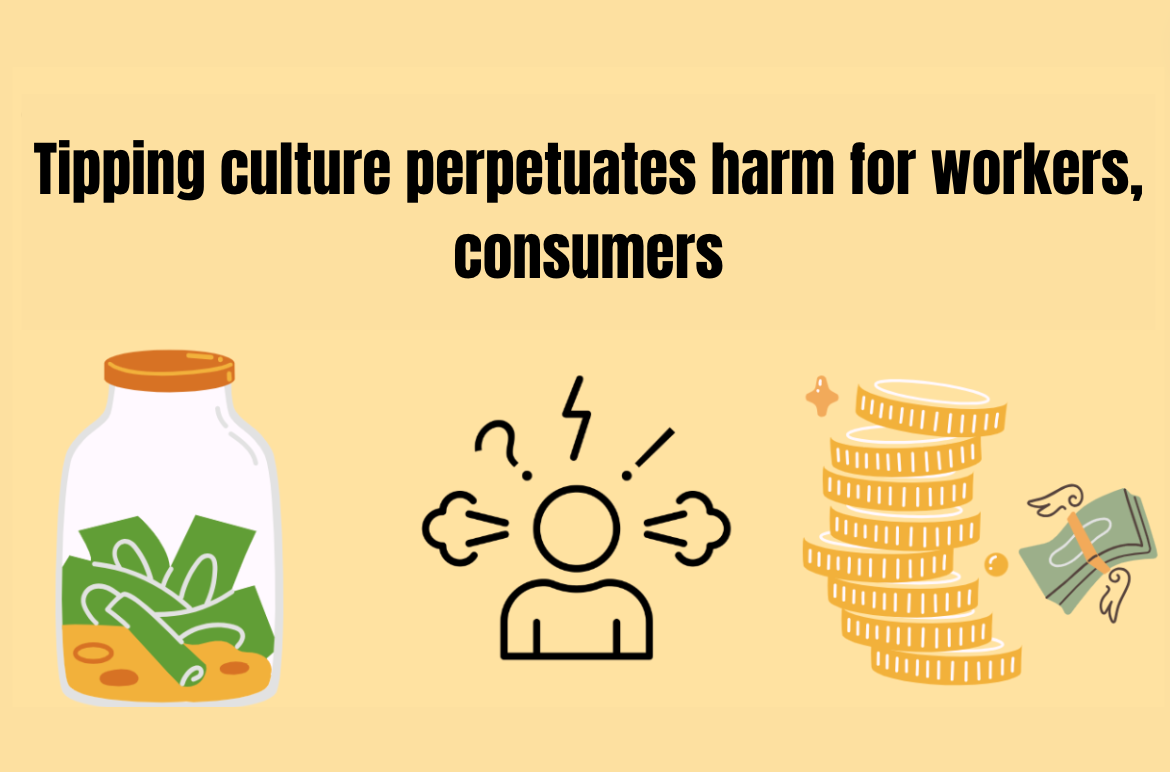After my friends and I finished our meals, having budgeted for what used to be a typical service tip of 15%, we were shocked by the bright light of the payment screen with percentages above what was customary a few years ago. My friends and I began to look at each other frantically trying to figure out what the appropriate percentage of tip would be, as the waiter became increasingly impatient. The experience caused me to question why customers are pressured to pay workers, instead of their bosses paying them fairly.
Tipping culture in the U.S. causes wage disparities between different occupations and industries. According to the U.S. Department of Labor, tipped employees often earn significantly less than the minimum wage. The lowest minimum wage for workers who rely on tips in the U.S. is $2.13 per hour, known as a cash wage. However, this amount can be higher or lower depending on the state. That cash wage is combined with tips to reach the federal minimum wage of $7.25 per hour. Employers can pay workers a lower salary by using the excuse that tips will compensate for the difference. However, this payment system does not guarantee that workers will earn enough tips to make a living wage. Thus, tipping culture is problematic because it creates inequality when some workers rely on tips to sustain themselves while others receive a consistent and fair wage.
According to the International Labor Organization, a federally mandated minimum wage prevents workers from receiving low pay that is unsustainable to an adequate living standard. However, some employers have exploited this loophole, subjecting their workers to not only the same number of hours as workers earning the usual minimum wage but also jeopardizing their income with unguaranteed tips. This approach allows employers to maximize their profits, often at the expense of their hardworking employees, who are left uncertain about their earnings.
As a result, employees’ income can fluctuate dramatically from one shift to another, making it exceedingly challenging to budget for everyday expenses such as rent, utilities and groceries. The precariousness of this system can lead to financial stress and instability for workers.
Tipped workers are turning up to their jobs without knowing how much they will earn from that specific shift, causing not only financial strain and uncertainty but also a strain on workers’ mental health. Employees may feel like they must endure disrespectful or abusive behavior from customers in pursuit of tips.
Tipping culture has the potential to foster discrimination and bias. Tipping amounts can be influenced by a customer’s perception of the server, which can be shaped by race, gender, age or appearance. This is a harsh reality that we must acknowledge. According to Forbes, after receiving results from a survey on tipping culture, More than 70% of respondents said that the quality of service they receive impacts their decision for how much they decide to tip.
No one should be concerned about earning less than a colleague due to another person’s biased judgments. It is unacceptable that two individuals, working the same hours, hired for the same job with equal qualifications and work ethic, see their earnings affected by someone’s personal opinion of what a server should be like.
While tipping may seem like a way for customers to control how much they reward their server, it can also lead to hidden costs. Coffee and dessert shops traditionally did not rely on tipping before the COVID-19 pandemic. In these businesses, customers would typically pay for their order at the counter without the expectation of leaving a tip for the service provided. With the onset of the pandemic, many coffee and dessert shops faced significant challenges, including increased operating costs and a lack of customers due to safety measures. According to Vox, establishments began to include options for tipping as a way to support their staff. What was once a chance for customers to have a comfortable atmosphere where they could enjoy their coffee and cake, has now become a somewhat awkward situation, where the customers feel pressured to pay the tips they know the workers may need.
For those who may be on a budget or struggling with their finances, this unanticipated expense can be stressful and uncomfortable. While tipping is intended to provide customers with a way to reward good service, its hidden costs can create financial challenges for customers. The potential for additional expenses highlights the need for a more straightforward approach to compensating service workers.
It is essential to consider alternatives to tipping culture. Rather than adhering to traditional tipping norms, restaurants could implement a “service-included” payment model where set service charges are added to the bill and shared among the staff for fair and steady wages.











